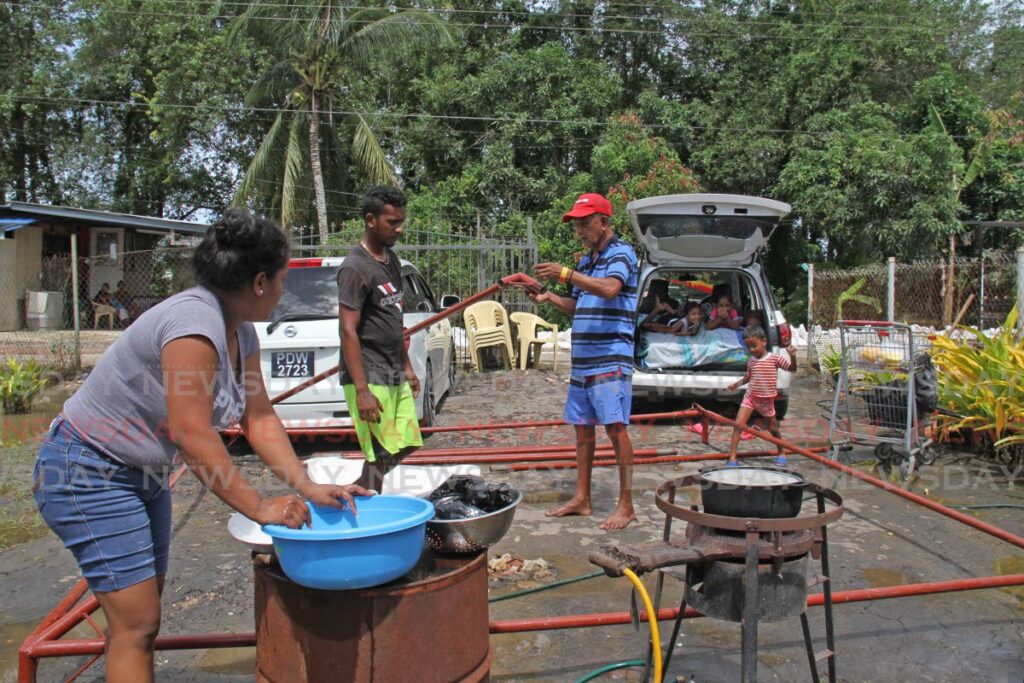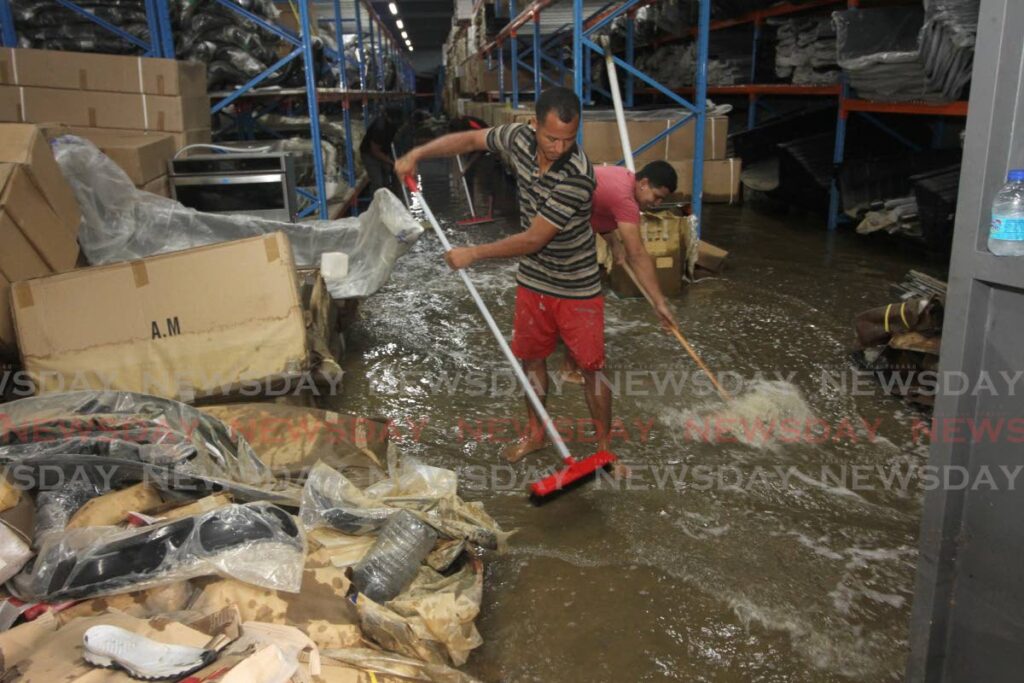Urgent action to minimise flood disruption – building resilience

Prof Michelle Mycoo
Climate scientists who have been studying climate change for over three decades agree that the planet is warming and events such as flooding are being worsened by human activities. We used to say that we cannot take one extreme event and attribute it to climate change. However, we now know with greater certainty that climate change is worsening our weather.
In Trinidad, rainfall over several days in November 2022 brought floods, not just to flood prone areas, but to other places where flooding was uncommon. Economic costs to households, farmers and other business operators were enormous. Many citizens wonder whether climate change is responsible for these floods. As a society we must have hope that there are actions which can alleviate impacts such as flooding.

Land use and land cover changes resulting from urbanisation, built development on hillsides or flood plains, agricultural activity on steep slopes, deforestation due to squatting or bush fires, wetland removal, inadequate drainage and solid waste management, are examples of human activity which contribute to the devastating floods we experience.
Nearly half (46 per cent) of the lands suitable for agriculture were converted to housing between 1984 and 2012. This resulted in more concretised surface areas which contributed to rapid surface water runoff and floods. In addition, squatters have encroached on watersheds and coastal lands which are prone to flooding. Approximately 55,000 households occupy state lands, and an additional 30,000 households are on such private lands (Rajack and Frojmovic, 2016). Illegal land occupation in ecologically fragile zones is incentivised by the existing law of adverse possession and regularisation policies (Toppin-Allahar, 2001). Additionally, approved private sector and state housing occur on hillsides and poorly drained clay soils trigger flooding.
Strengthened governance capacity is important to minimise flooding and build resilience. It involves adopting an integrated approach to building, land use and planning, and ecosystem management.
New designs are recommended to reduce flood impacts by ensuring that the floor levels of houses are above recorded flood levels. Traditional building design using stilts in flood prone areas should be revisited. Moreover, the future siting and design of housing should be informed by a rigorous assessment of coastal hazards such as storm surges, a revised building code, and revised setbacks for new structures being built on the coast. Shelters should be built in locations that are safe from flooding to ensure public safety.

Closer collaboration between the Drainage Division and the Town and Country Planning Division is urged in selecting sites for building retention ponds. Drainage engineers should also build a stronger relationship with local government bodies responsible for drain maintenance, and especially sediment removal. Maintenance of pumps and sluice gates to control water levels requires monitoring and evaluation as well as surveillance technology to ensure that the infrastructure is secure.
Nature has an important role in minimising flooding. Blue infrastructure such as watercourses, ponds, and storm drainage, provide functions including drainage, water infiltration and temporary storage of runoff and discharge. Green spaces improve floodwater management and coastal defence. Green infrastructure includes planted and native vegetation, soils, wetlands, parks, and green open spaces.
An improved early warning system is essential to build resilience in flood prone communities. It is the set of technical and institutional capacities to forecast, predict and communicate timely and meaningful warning information to enable individuals, communities, and organisations to act promptly and appropriately to reduce harm or loss.
Education is also fundamental to change society’s treatment of nature including our rivers, forests, and wetlands.
New technologies exist that can enhance flood risk management such as earth observation data which tracks land use changes over time and empowers planners to conduct vulnerability assessments and prescribe "no-development" zones. Landsat data holds much potential to improve land use and infrastructure planning. Drones are low-cost and easy to use data technology. Geographic information systems produce flood susceptibility maps which facilitate urban planning.

The UWI builds flood management capacity through education, scientific research, and technological innovation. UWI scientists provide advisory services to national committees on climate change, watershed and mangrove restoration, urban planning, coastal zone management, flood susceptibility mapping, drainage, and cultivating flood resistant agricultural crops. It is educating urban and regional planners, engineers, architects, geoinformatics specialists and ecologists to play an instrumental role in reducing floods to help save people’s lives, protect economic assets, and improve human health and well-being. Alleviating the economic losses and psychological trauma of flood victims calls for urgent science-informed action. We must act now.
UWI on the ground
A university must be centred in the community, leading on the key issues of the day. Accordingly, the University of the West Indies, (UWI) St Augustine, introduces a public service series where its leading scientists and researchers will address climate and disaster challenges.
Today, our distinguished Prof Michelle Mycoo, professor in Urban and Regional Planning, co-ordinating lead author for the UN Intergovernmental Panel on Climate Change 6th Assessment Report Climate Change 2022:( Chapter 15) and deputy-executive director of The UWI Global Institute for Climate Smart and Resilient Development speaks. She was among the scientists who received the 2022 Gulbenkian Prize for Humanity recognising outstanding action in fighting against the ecological and climate crisis.
Professor Rose-Marie Belle Antoine
Principal, UWI, St Augustine

Comments
"Urgent action to minimise flood disruption – building resilience"